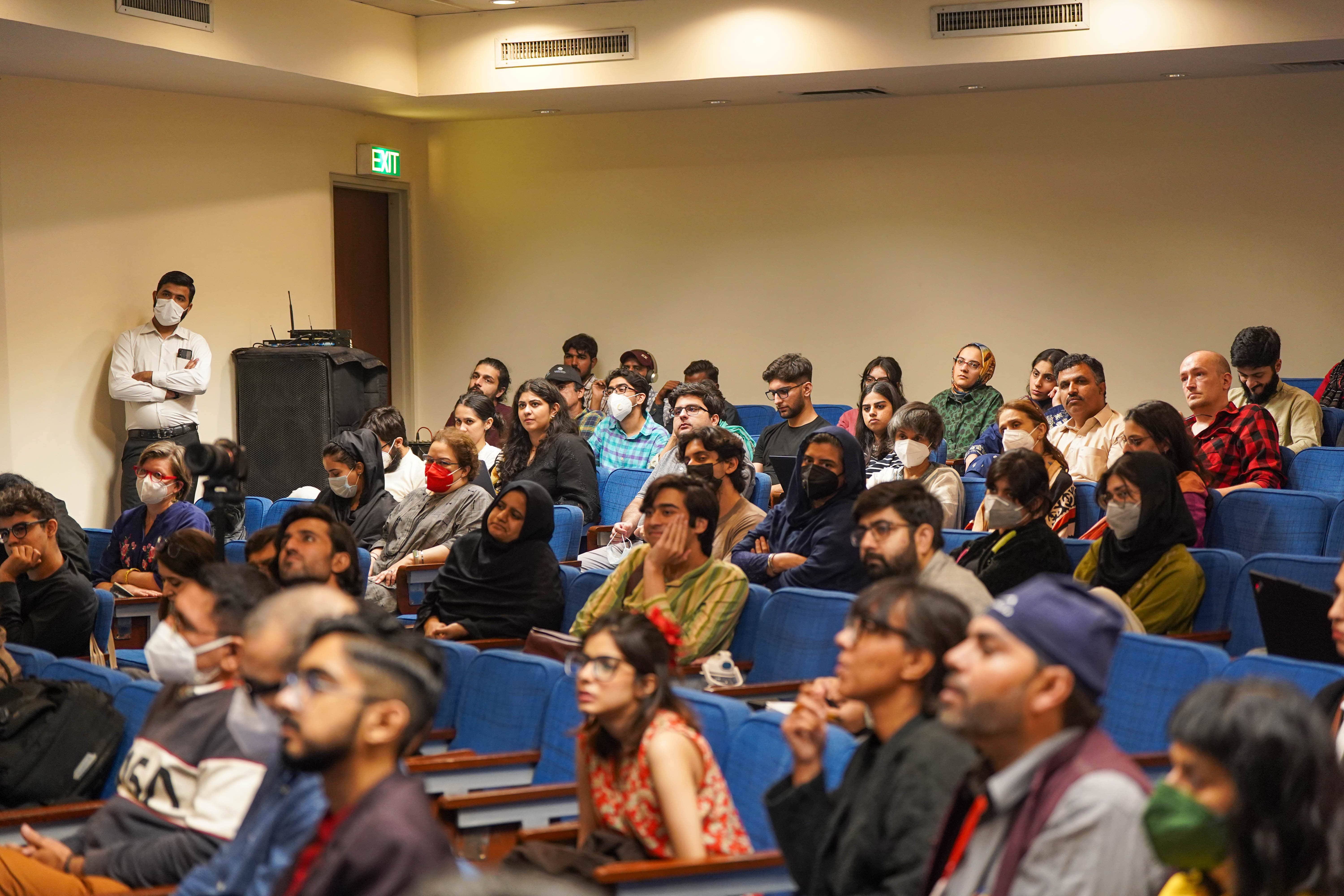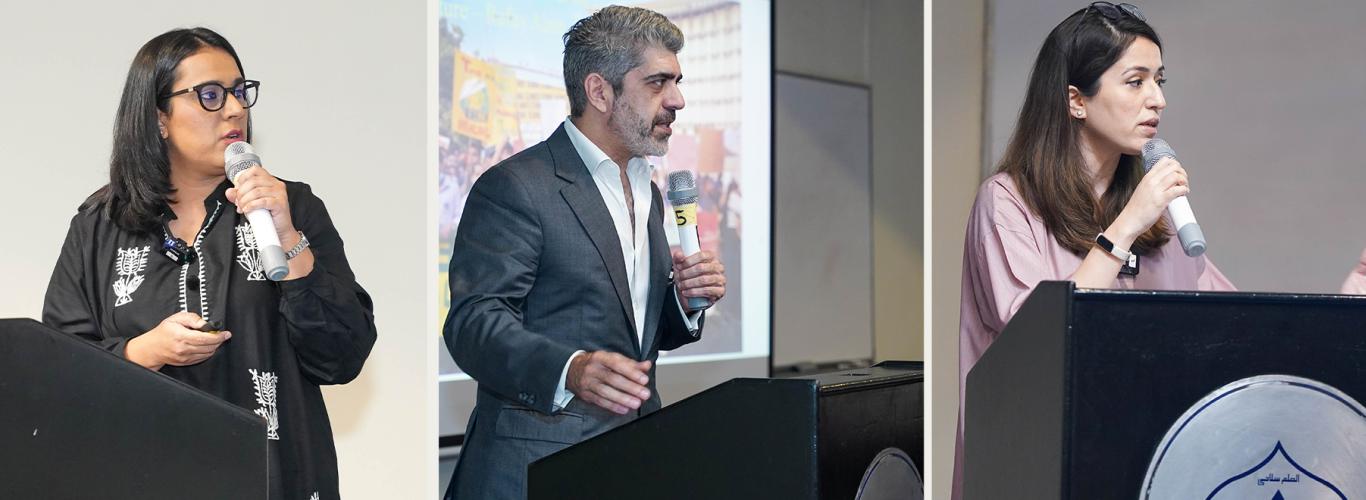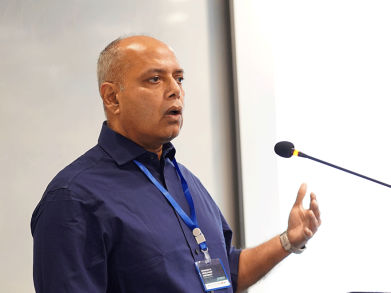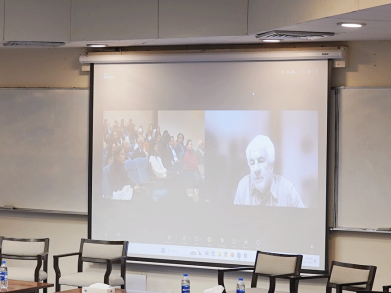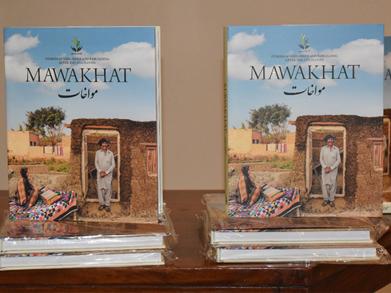LUMS Hosts Panel on Climate Narratives in Collaboration with Lahore Biennale’s Climate Congress
Amid heightening climate crises worldwide, LUMS collaborated with the Lahore Biennale’s Climate Congress to host a series of topical panels addressing Pakistan's climate issues. The panel session titled ‘Climate Narratives: Storytelling, Advocacy and Environmental Justice’ on November 8 brought together experts to discuss the significant role of narratives in shaping climate discourse and subsequent action.
The insightful session was moderated by Dr. Sana Khosa, Assistant Professor of Environmental Studies at the Mushtaq Ahmad Gurmani School of Humanities and Social Sciences (MGSHSS), LUMS. The panellists included Dr. Saba Pirzadeh, Associate Professor of English at LUMS; Mr. Ahmad Rafay Alam, an acclaimed environmental lawyer and activist; and Dr. Fazilda Nabeel, a climate and water governance expert.
Introducing the session’s theme, Dr. Khosa emphasised the significance of climate narratives as critical tools in inspiring or disrupting action. “They cover a wide range of stories and perspectives, from scientific accounts, policy appeals, personal testimonies, and fictional tales of lived experience and imagined futures,” she stated.
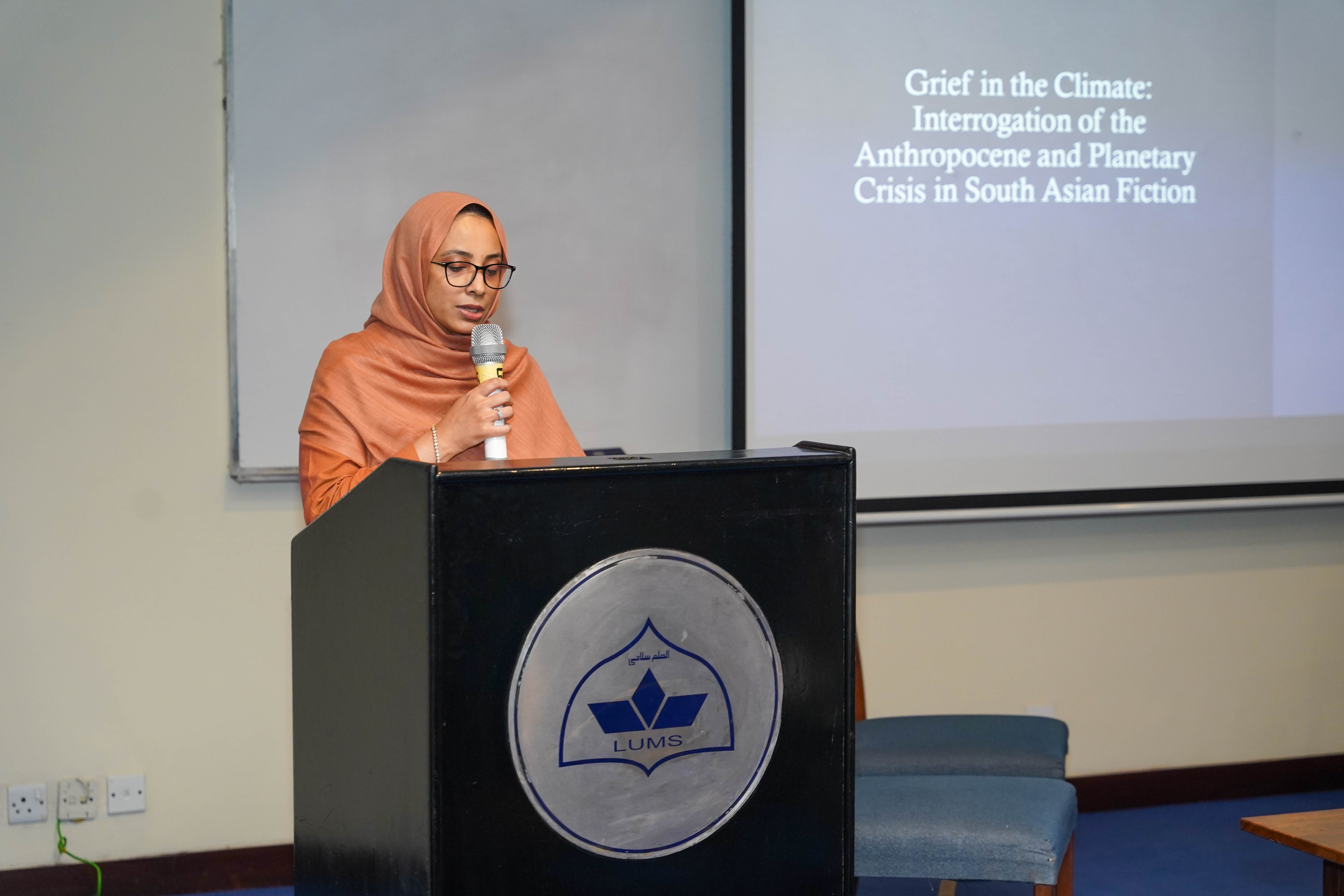
Dr. Ali Khan, Dean of MGSHSS, and Associate Professor of Anthropology, LUMS, delivered the session's opening remarks. Welcoming the audience to the event, he expressed gratitude on behalf of the School for the opportunity to host an important dialogue on a theme as pressing as climate. “It has been essential for academics to contribute to public discourse, and the more opportunities that are created for this, the better the mutual benefits for us,” he said.
He thanked Mr. Osman Waheed, President Ferozsons Laboratories Ltd. and member of the Management Committee, LUMS, for helping bring the event to fruition, and appreciated the Lahore Biennale’s curators, Mr. John Tain and Dr. Iftikhar Dadi, for their partnership with LUMS. He also acknowledged faculty members Dr. Khosa, Dr. Nadhra Shahbaz, Dr. Maryam Ibrahim, and alumna Farwa Tassaduq for contributing to the Climate Congress’s success.
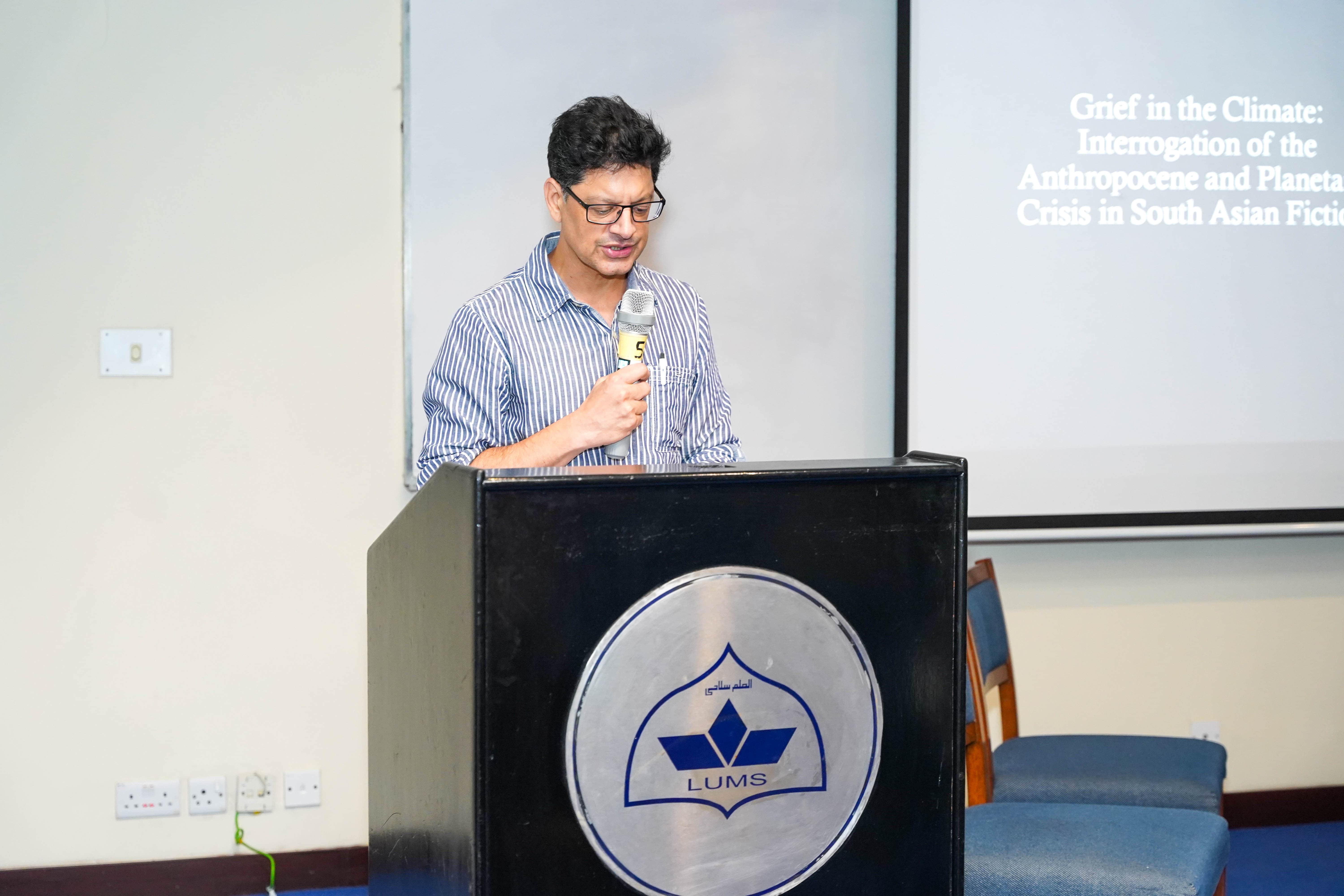
“I’m particularly thankful to those researchers, artists, and other supporters for showcasing their talents and sharing this critical research in the midst of this very apocalyptic environmental landscape that we find ourselves in today,” Dr. Khan added, before offering the stage to the panellists.
The first talk, titled ‘South Asian Fiction and Converging Climate Catastrophes’, was delivered by Dr. Pirzadeh, informed by her extensive work in the areas of environmental humanities and postcolonial studies, with a focus on the literary representation of anthropocentric violence, climate crises, petro-culture, hydro-politics, and socio-ecological justice. As part of the panel, Dr. Pirzadeh presented her research essay on ‘Grief in the Climate: Interrogation of the Anthropocene and Planetary Crisis in South Asian Fiction.’

The essay focused on the emergent category of ecological crime fiction context through an analysis of Osama Siddique’s Snuffing Out the Moon (2017) and Amitav Ghosh’s Gun Island (2019), novels that depict the fallout of climate crisis and anthropocentric instrumentalisation of nature within local and regional contexts.
“The trope of social interrogation is being used to examine the implications of ecological degradation, since environmental consciousness has permeated popular and commercial fiction,” Dr. Pirzadeh explained.
In this regard, her paper examined how these South Asian authors combined historical re-telling with crime fiction elements to generate a critical understanding of the causality and culpability underlying climate breakdown. In doing so, it established that the structural paradigm shift in South Asian ecological crime fiction makes readers recognise how “climate is omnipresent in the history of cultures…as a condition and product of life, as responsible for and a threat to human existence” (Hulme) to highlight the impact of anthropocentric processes on the earth’s ecosystems.
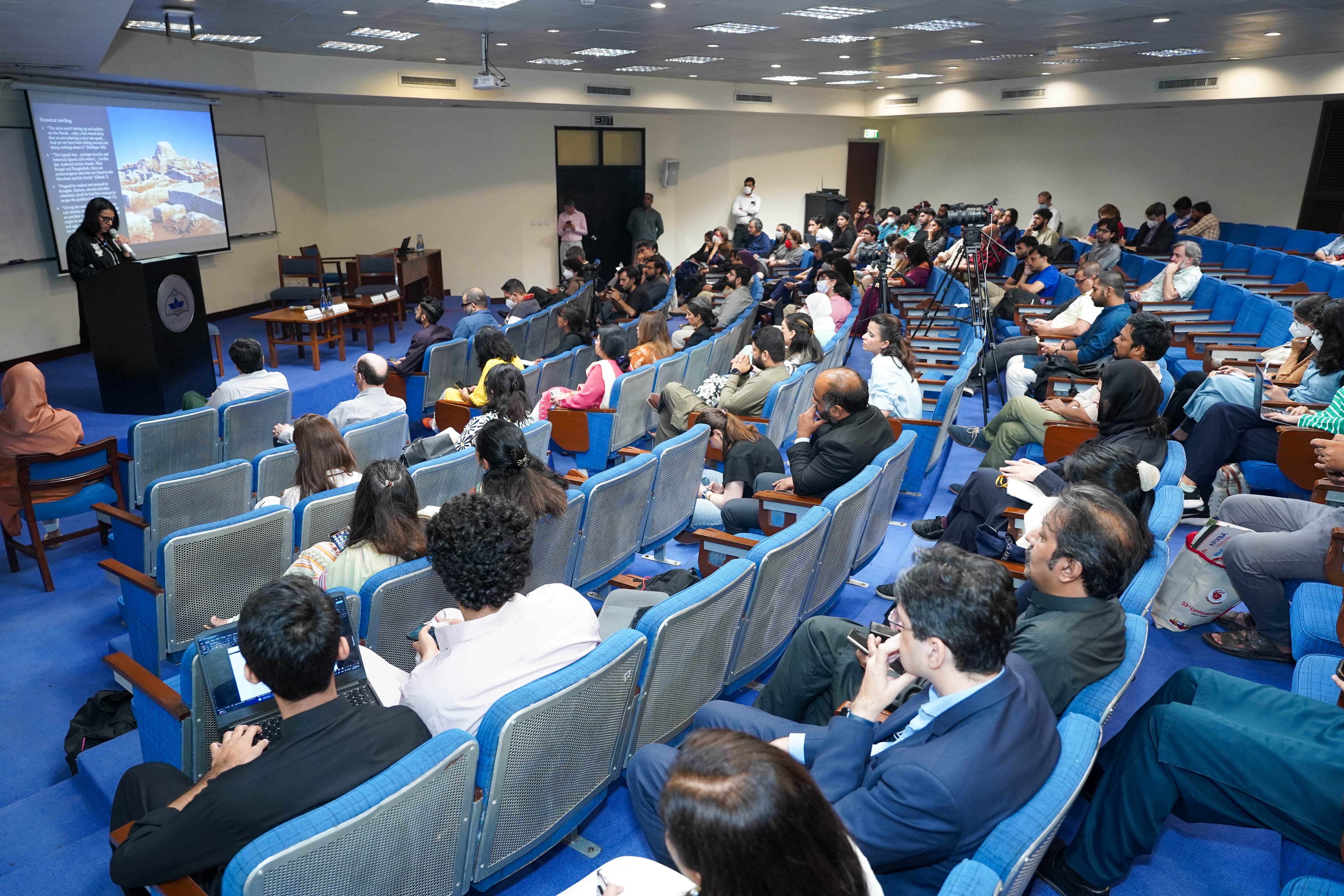
The second panellist, Mr. Alam, also harked back to Amitav Ghosh’s work in his talk, titled ‘The Climate Crisis and Our Future’, by referring to Ghosh’s The Great Derangement. He offered a scathing critique of modern society's unwillingness to actively respond to the climate crisis despite having the knowledge and tools necessary to bring about change. He identified the gradual disappearance of climate narratives from human stories as a factor contributing to the ‘derangement.’
“If you go back less than two centuries ago, you’d be hard-pressed to find a story or narrative of human beings on earth that isn’t inextricably linked with its environment. Stories of Europe involved forests. Almost all the Punjabi poetry here involves a riverbank somewhere. These things were a part of us and our discussions about our stories – they were woven in together,” he noted. “Now, with modernity, it’s very different because of our focus on the individual agency of the person and the story they tell of their lives. It seems that the environment is now the backdrop against which the stories and the dominant discourse of human beings are being told. And this is the derangement.”
He added that this disconnect must be addressed by bringing stories of nature back into the mainstream, placing climate change and the environment into discussions on art, literature and human lives for transformative change to take place.
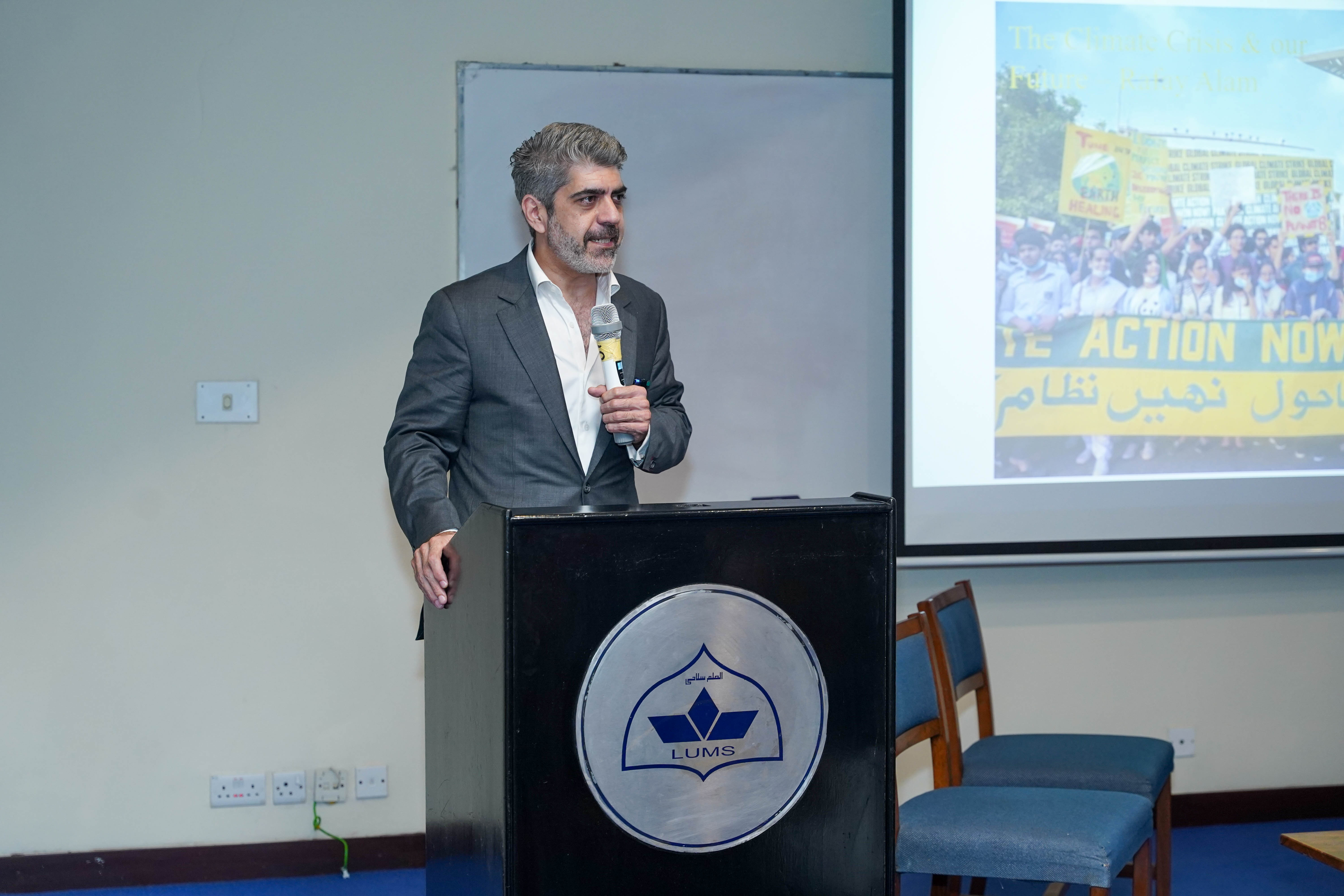
Mr. Alam also criticised global institutions for prioritising profit-making over environmental conservation, drawing connections between the global climate crisis and the structural problems of capitalism, imperialism, colonialism, and patriarchy.
“Climate change isn’t the problem; it’s a symptom of something much worse — of human civilisation overconsuming this planet’s ability to replenish itself. And this overconsumption is driven, amongst other things, by capitalism,” he asserted. He emphasised the need to mitigate climate disasters, particularly in the Global South, through effective policy implementation and sufficient climate financing.
Following this, Dr. Nabeel took the podium with a talk titled ‘But What About Climate Justice Within?’ to shed light on the governance aspect of climate change in Pakistan. “I work at the intersection of academia and policy, mostly doing policy research, so I’ll bring in a practitioner’s perspective to the conversation,” she said, adding that she would be presenting the preliminary findings of her ongoing research.
“Missing from the entire discourse of global climate justice are questions of climate justice within Pakistan,” she pointed out, identifying gaps in the global climate narrative. She noted that most mainstream discussions about climate are vastly disconnected from the people directly confronting the brunt of climate disasters in countries in the Global South, such as those affected by the 2022 floods in Pakistan.
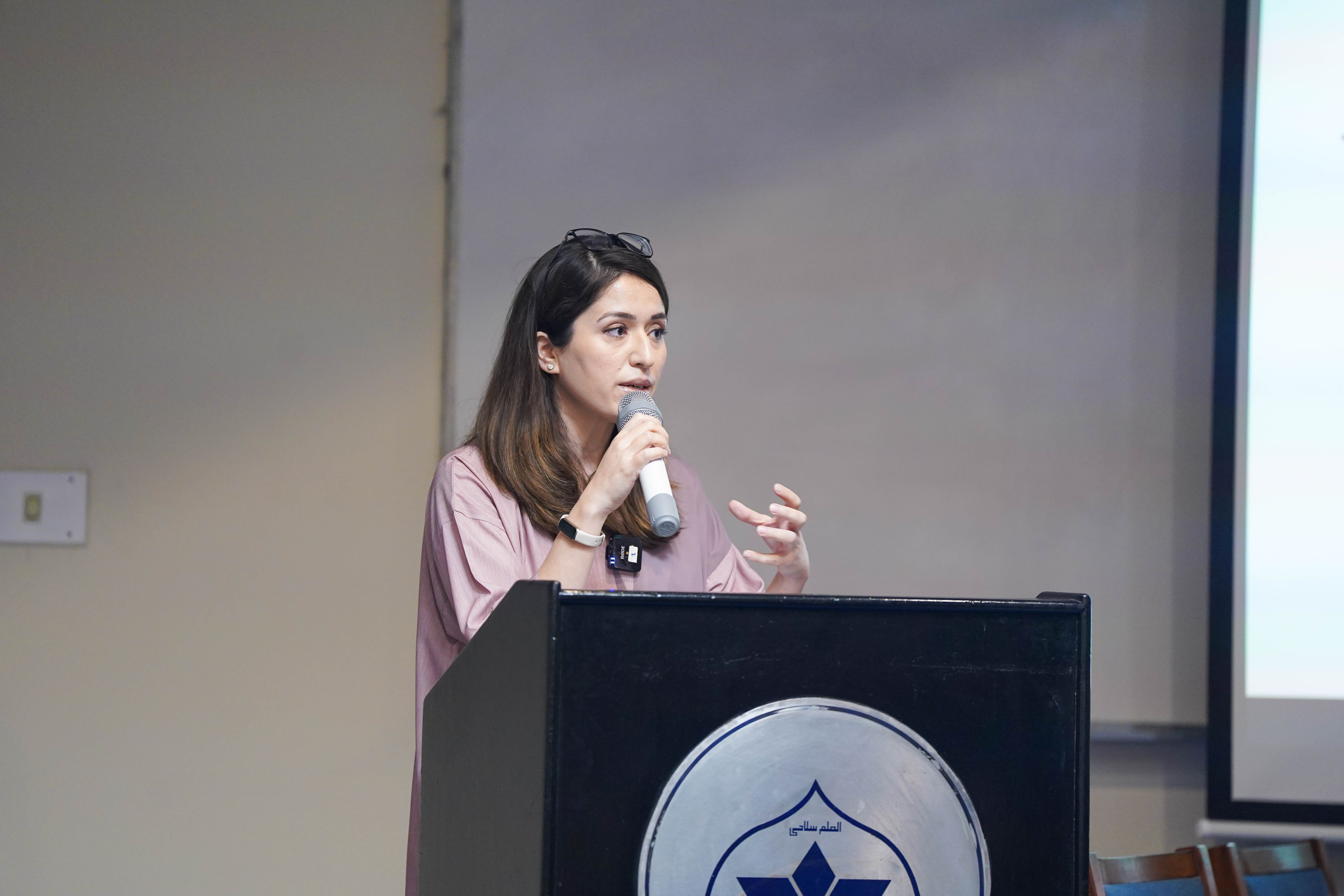
Dr. Nabeel focused on the importance of climate justice, categorising it into three types: distributive, procedural, and recognitional. Based on her extensive work in policy, she raised questions about how climate justice issues have been dealt with in national and provincial plans and policies. She noted that while numerous climate-related policies and action plans have been introduced in Pakistan in recent years, few incorporate questions of justice and equality.
“I argue that most of Pakistan's climate action plans demonstrate a superficial understanding of socio-economic inequalities, and their reference to environmental and climate justice is merely symbolic,” she shared.
The discussion ended on an optimistic note, with the panellists urging the audience to keep contributing to a progressive climate narrative to drive lasting and systemic change.
